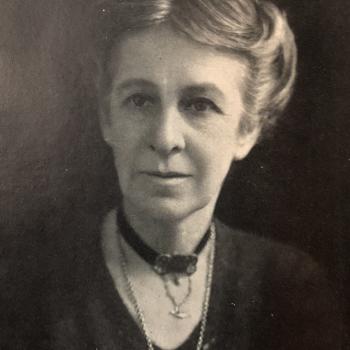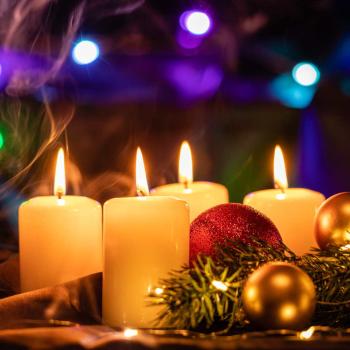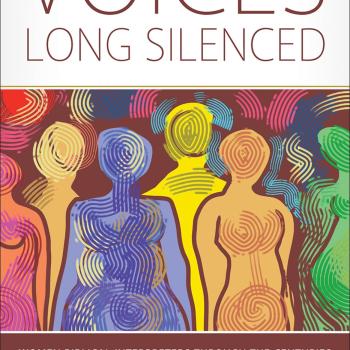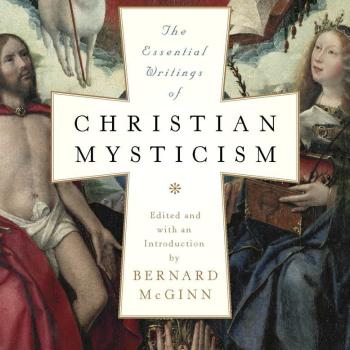Today (June 15) is a day for remembering the passing of Evelyn Underhill, who died on this day in 1941.
If you are new to Evelyn Underhill, she was probably the most important writer in the English language for celebrating Christian contemplative and mystical spirituality in her lifetime. From the publication of her magisterial book Mysticism in 1911, until her death three decades later, she (in the words of Archbishop of Canterbury Michael Ramsey) “did more than anyone else… to keep the spiritual life alive.”
Her influence was just as remarkable; as biographer Dana Greene points out in her book Evelyn Underhill: Artist of the Infinite Life, she influenced a wide variety of Christian and other spiritual writers starting in the mid-20th century, Figures such as T. S. Eliot, C. S. Lewis, Thomas Merton, Richard Rohr, Alan Watts, and Charles Williams (not to mention yours truly) were nurtured by Underhill’s contemplative writing, which sought to make the mystical dimension of spirituality available to ordinary people of all walks of life.
With this in mind, I’d like to observe the anniversary of her passing by highlighting a remarkable new book recently published by S.P.C.K. in England. The Spiritual Formation of Evelyn Underhill offers insight on her backstory — particularly her relationship with her first spiritual director, Baron Friedrich von Hügel, who was himself an authority on mysticism and the author of The Mystical Element of Religion, which explored Christian mysticism by focusing on the spirituality of St. Catherine of Genoa.
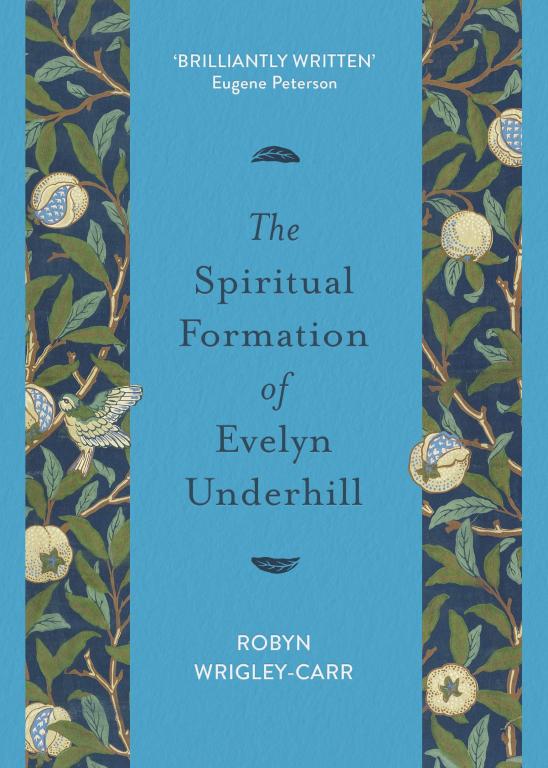
The author of this book, Robyn Wrigley-Carr, is the editor of Evelyn Underhill’s Prayer Book, which came out in 2018 (I reviewed it here). With her new book, she offers insight into not only Underhill’s formation (shaped by her reading as well as the mentoring of von Hügel and several other luminaries of British Christianity, most notably Abbot John Chapman and Reginald S. Ward), but also offers insight into how Underhill herself ministered to others, both as a spiritual director and as a retreat leader. Among her many directees was Lucy Menzies, author of Mirrors of the Holy as well as an unpublished biography of Underhill.
What emerges is an insightful glimpse into the inner life of an important 20th century contemplative — but The Spiritual Formation of Evelyn Underhill has an even larger function — it offers insight into how spirituality is passed from generation to generation, beginning with those who formed Underhill but then going on to examine how important she became in the formative spirituality of others.
Still, if Underhill is the star of this book, the Baron practically deserves second billing. Indeed, in the book’s forward (written by Eugene Peterson, and published here posthumously) it is apparent that Peterson himself was primarily interested in how this book examines the spirituality of Baron von Hügel. That’s not surprising, for Wrigley-Carr (who studied under Peterson) tells of how important the Baron’s writing was to Peterson.
So I think this book serves really a triple purpose:
- Obviously, it’s a celebration of Evelyn Underhill and will delight Underhill’s confirmed fans (like me) and could also serve to introduce new readers to her;
- It introduces readers to Baron Friedrich von Hügel, who like Underhill was a scholar of mysticism but who emphasized the importance of spirituality within a social, communal, and ecclesiastical setting; and
- It offers a longitudinal look at how spirituality is passed down from generation to generation, beginning with von Hügel directing Underhill, but then reflecting on how Underhill directed others.
Anyone interested in Evelyn Underhill, twentieth century Christian mysticism, and the ministry of spiritual direction will be delighted by this book. I should also mention that both von Hügel and Underhill corresponded with many of the directees, and so fortunately we have many of their letters preserved, giving us invaluable primary source insight into their work as spiritual guides. So if you enjoy The Spiritual Formation of Evelyn Underhill, these collections of letters are well worth checking out:
- Baron Friedrich von Hügel, Spiritual Counsel and Letters (edited by Douglas V. Steere);
- Baron Friedrich von Hügel, Selected Letters 1896 – 1924 (edited by Bernard Holland);
- Baron Friedrich von Hügel, Letters to a Niece (edited by Gwendolen Greene);
- Evelyn Underhill, The Letters of Evelyn Underhill (edited by Charles Williams);
- Evelyn Underhill, The Making of a Mystic: New and Selected Letters (edited by Carol Poston).
Enjoy reading this blog?
Click here to become a patron.





